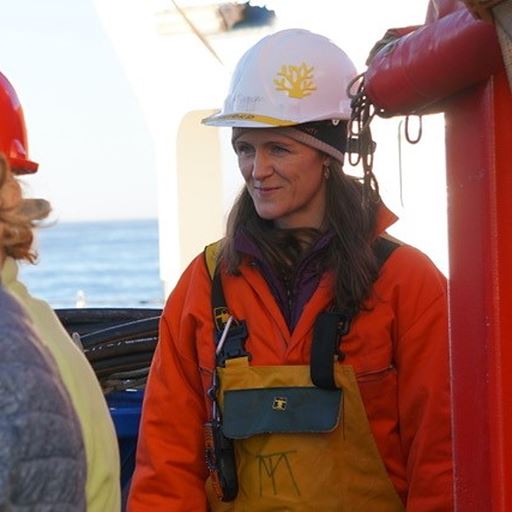Michelle is new President of Deep-Sea Biology Society
-
Date
Tue 7 Dec 21

Essex marine biologist Dr Michelle Taylor is the new President of the Deep-Sea Biology Society, a leading research charity dedicated to deep-sea research.
Dr Taylor, from our School of Life Sciences, specialises in deep-sea floor environments, specifically corals. Her new role as President will focus on supporting researchers in the field of deep-sea biology with funding, access to networks, a forum for idea sharing and a platform to amplify their research.
One of the major challenges with her position is securing new funding for further deep-sea research – funding which was scarce even before the pandemic, and now is even harder to obtain.
The largest and most concerning problem facing marine biologists is the impact of climate change. As part of COP26, a research paper by Dr Taylor and other scientists has called on world leaders to prioritise ocean conservation in order to adequately tackle the climate crisis.
“The ocean does carry the heaviest load of all of the different ecosystems,” says Dr Taylor. “90% of heat is absorbed by the ocean, compared to 3% on land, and most of that is deep-sea. In terms of the geochemistry of the ocean, the deep sea plays a crucial role.”
She added: “Increasing temperatures are beyond what most animals can evolve and adapt to withstand. It's scary to think that some creatures may go extinct before we've even had a chance to study and understand them. The sheer ability for them to exist is being challenged.
“I can't think of one expedition to the deep sea that hasn't found some physical sign of human influence, be it a fishing net or glove or can or plastic or something. And that's pretty shocking when you go to some of the furthest places in the world.”
A major concern for Dr Taylor is ocean acidification, a process which may lead to the breakdown of some habitats and even alter the functions of deep-sea organisms.
However, it isn’t just deep-sea animals in peril. Humans are now facing the impact of climate damage to our ocean. A 2019 study estimated that sea levels will rise by between 69 and 111 centimetres by 2100, which could displace up to 187 million people and see many cities worldwide becoming completely submerged and disappearing altogether.
“The Pacific nations are just being hammered by climate change,” added Dr Taylor. “Some of those nations may cease to exist, they might not have land... That culture might just disappear with climate change… That’s the extinction of a culture. It’s terrifying.”
This article was written by second year Multimedia Journalism student Lily Morris
.jpg?mh=500&mw=500&hash=6568B6C9CCF5290A596BEF6678B6AD0E)



